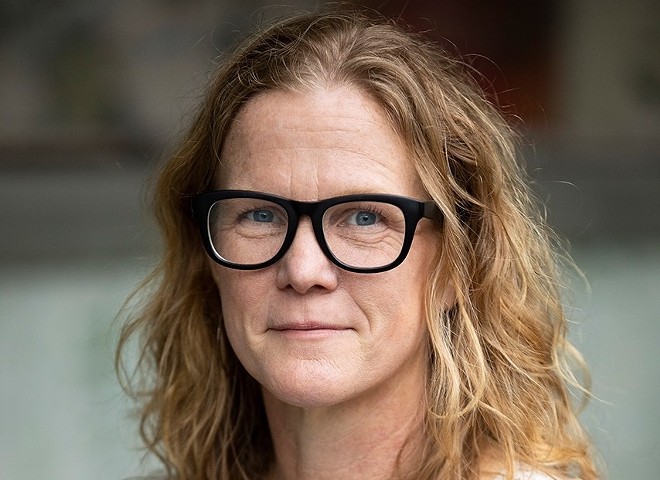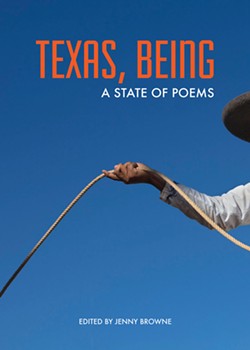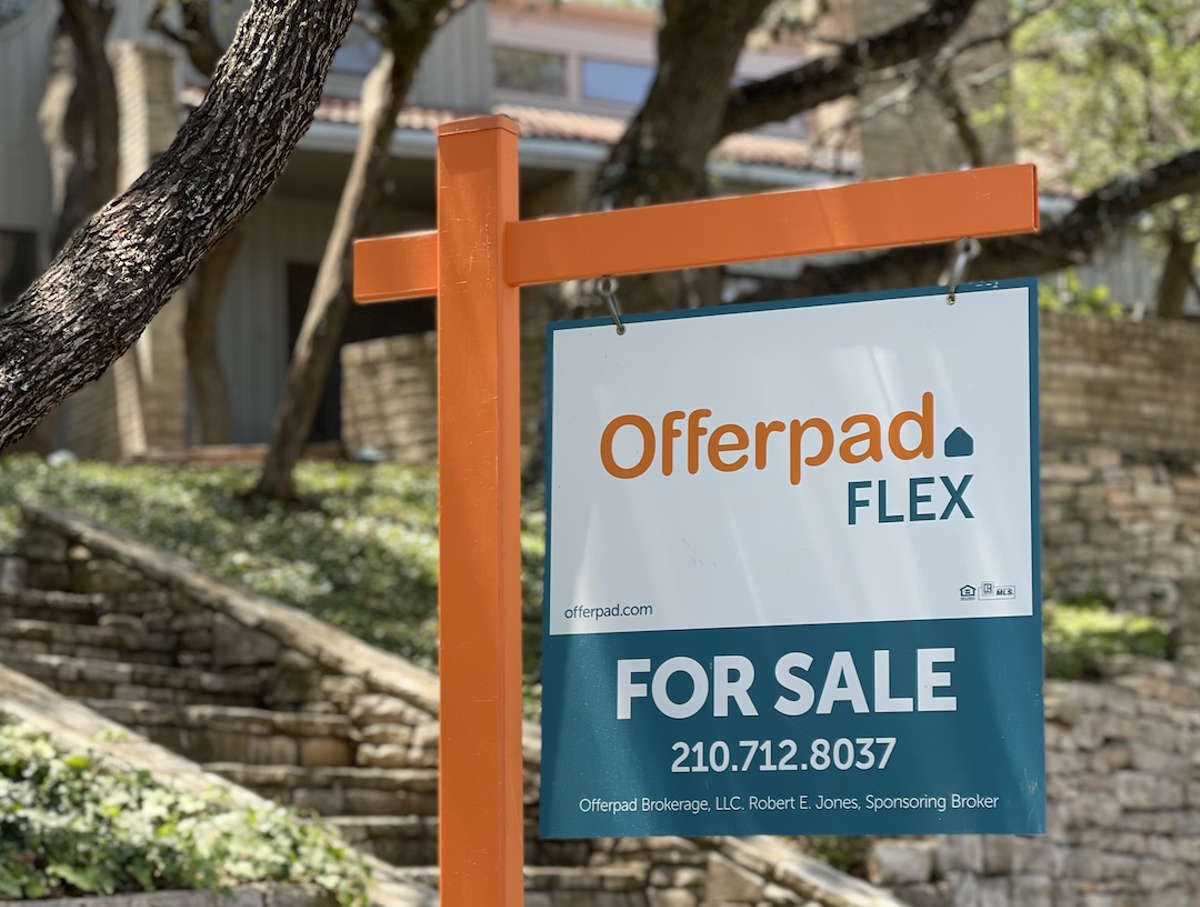
Courtesy Photograph / Trinity College Press
Jenny Browne, San Antonio’s 2016-2018 poet laureate, curated the brand new poetry assortment Texas Being.
Texas, Being: A State of Poems is an anthology that does not fake to cowl the historical past of Texas and even each city and metropolis. There’s one thing else at work on this assortment curated by Jenny Browne, a professor of English and artistic writing at Trinity College who additionally occurs to be the 2016-18 poet laureate of San Antonio and the 2017 poet laureate of Texas.
Browne explains in a short introduction that the enigmatic title borrows from the title of a poem she wrote when she moved to this “brutal and delightful state.”
That is the outline that units the tone for this spectacular and wide-ranging assortment of 47 poems — multi function means or one other about Texas.

Courtesy Picture / Trinity College Press
Texas, Being: A State of Poems, Edited by Jenny Browne, Trinity College Press/Maverick Books
Matthew Zapruder’s “April Snow” begins: “Right this moment in El Paso all of the planes are asleep on the runway. The world / is in a delay.” Zapruder was born in Washington, D.C., and went to school in Russia and later in California, the place he lives in the present day. Whereas he lived for a time in Marfa, this sizing up of a second in El Paso from this itinerant perspective delivers the methods good poetry sees the importance in issues most of us would pay little consideration to, how the creativeness amplifies the importance of a factor — a spot that by no means leaves you.
Whereas Zapruder manages to look at El Paso with out residing there, Jeff Sirkin truly resides within the West Texas border metropolis. In his “At Our Disposal,” the title of the poem suggests what is definitely shut by, however we rapidly transfer on to contemplate the methods we “dispose-all” (maybe most particularly on the border), from the remnants of a renovation forged right into a driveway to the black smoke that migrates from Mexico into the environment to the ladies “subsequent door [who] disappeared,” a reference to the murdered women and girls of Juárez.
Vievee Francis is from Texas. She later lived and labored in Michigan and North Carolina and now teaches at Dartmouth Faculty. Her poem “Nonetheless Life with Summer season Sausage, a Blade, and No Blood” takes us to East Texas within the Eighties. After which, by means of staggered parenthetical phrases, the speaker strikes us to contemplate a reminiscence that’s, not defective, however deliberate in ambiguously recounting and reimagining a seemingly odd journey a baby and her father take to the city of Palestine.
The “storefronts hadn’t modified since / my father was a baby,” she explains, and we perceive that racial and sophistication divisions have persevered. They share a snack of saltines and a sausage he cuts with a pocketknife. “We have been collectively / in Texas and we ate and walked in silence,” she writes.
Mirrored on this assortment is the truth that Texas is kaleidoscopic. However irrespective of the place we go in these poems, the areas render each a nostalgia and a horrible enlightenment — the sweetness and the brutality which Browne earlier describes.
In San Antonian Emily Winakur’s “Uvalde,” the speaker addresses her youngster and remembers the Uvalde, Texas of her childhood. As an adolescent she might look out the automobile window and there could be “an instance, in panorama kind, of all I might do and be.”
She says that in these days she by no means thought-about her mother and father’ gun, even when it was shut by within the automobile’s glove field. She tells her youngster, “What I thought of after I thought of dwelling / was wildflowers / rampaging throughout the land in spring; about fishing in shallow bays. / I believed Uvalde could be a reputation you knew from / tales I advised … As a substitute Uvalde will imply one thing else to you.”
In one other poem, it’s the youngster who speaks to the father or mother. Tarfia Faizaullah is a Bangladeshi American poet, initially from West Texas. In “Aubade: Summer season, Texas,” the speaker addresses her father with the “faint scent of coriander nonetheless lingering” on his fingers: “Neither the sky nor your arms will change what they do — you lay out the prayer mat / on summer season grass.” Her father will pray and by no means “cease searching for the face of the god who, even at daybreak, is silent.”
The pointillistic precision of this expertise of a more recent immigrant to Texas exhibits that there’s little or no in human expertise that’s unfamiliar. We’ve extra in widespread than not — even in Texas with its difficult historical past and the inglorious tendencies it clings to in the present day.
In “Texas,” Jorge Luis Borges describes the state as “the opposite/Fringe of the hemisphere … Right here too, the by no means understood / Anxious, and temporary affair that’s life.”
Once you see a replica of Texas, Being, you would possibly at first suppose which you can enter it and exit it simply, speedily. That will probably be an incorrect assumption. You’ll flip the primary web page, and the e book will fan open like a map of the entire world you will need to discover.
These fascinated about studying extra about Texas, Being have no less than two upcoming alternatives:
Trinity College Press and Texas Public Radio will host Texas, Being editor Jenny Browne and contributors Christopher Carmona, Naomi Shihab Nye and Andrea “Vocab” Sanderson as a part of the Maverick E-book Membership. Free, 7 p.m. Wednesday, April 10, Texas Public Radio, 100 Soledad St., (210) 614-8977, tpr.org.
A Texas, Being: A State of Poems panel will happen on the San Antonio E-book Pageant within the Texas Month-to-month Tent. The panel contains Jenny Browne and contributors Jan Beatty, Octavio Quintanilla, and ire’ne lara silva. Free, 4 p.m. Saturday, April 13, Central Library and UTSA Southwest Campus, 600 Soledad St. and 300 Augusta St., (210) 750-8951, sabookfestival.org.
Subscribe to SA Present newsletters.
Comply with us: Apple Information | Google Information | NewsBreak | Reddit | Instagram | Fb | Twitter| Or join our RSS Feed





